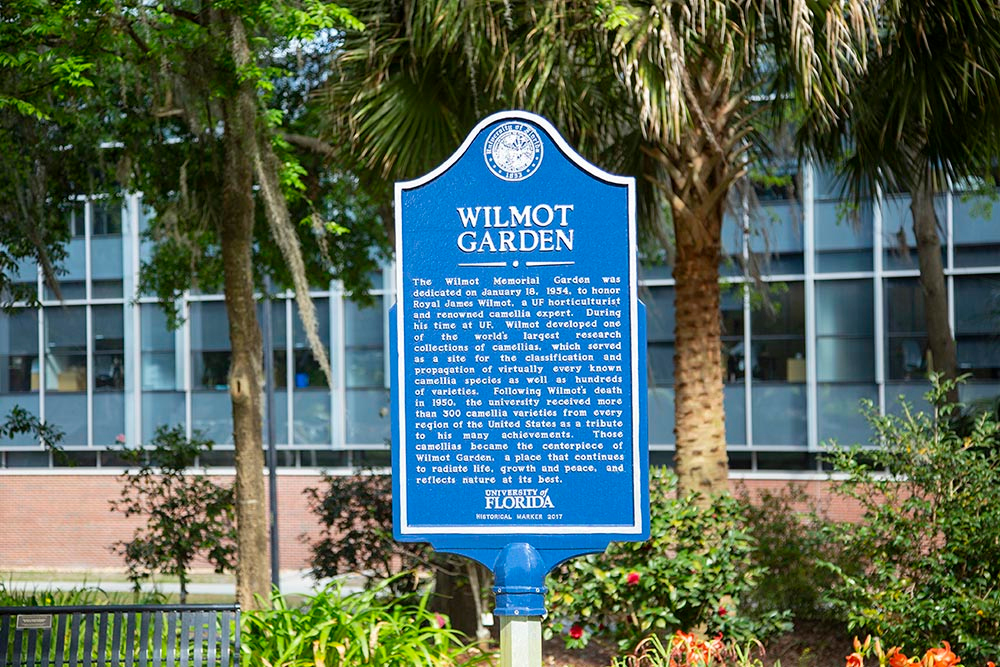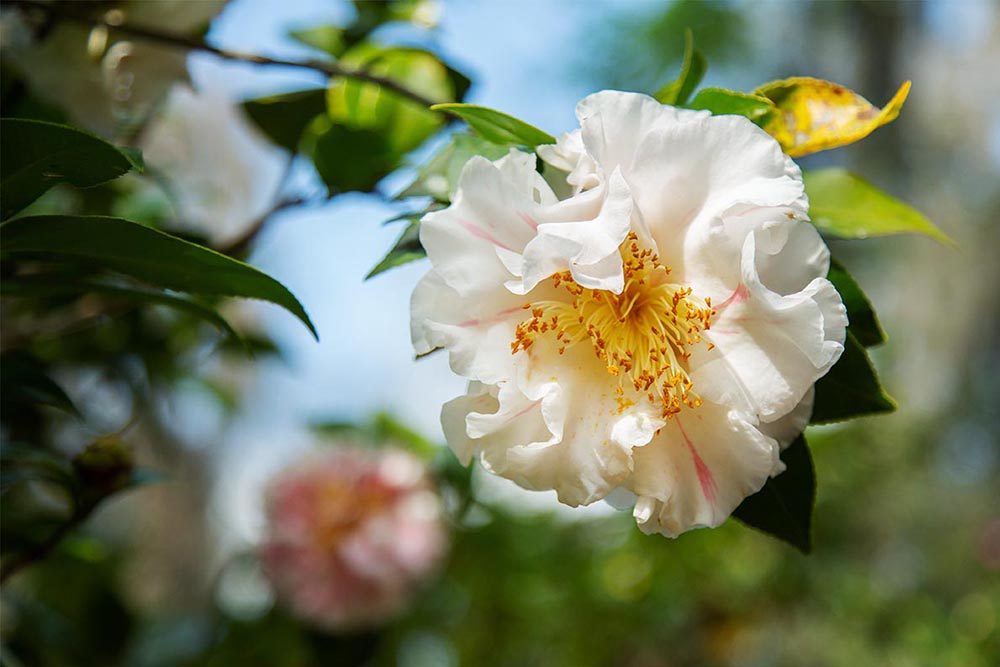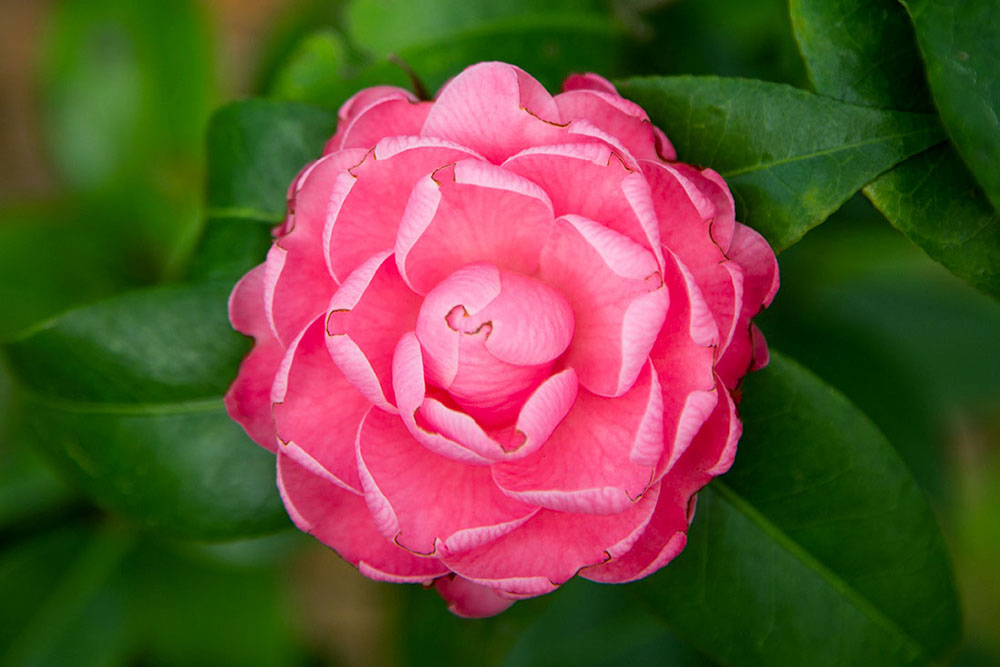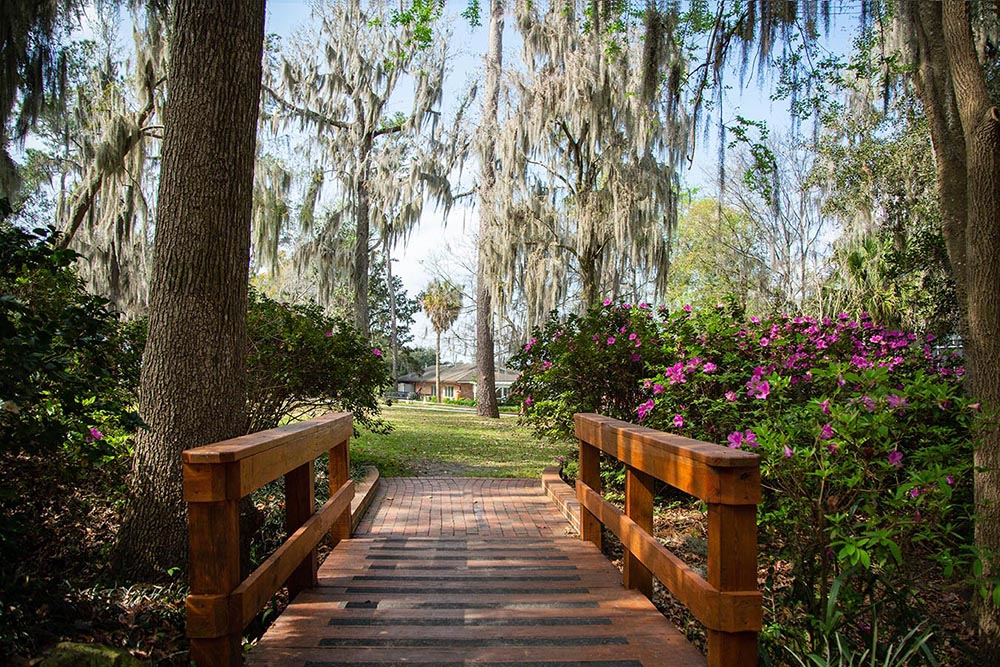
A healing garden is in bloom again
Wilmot Botanical Gardens is an oasis on UF’s campus. Situated in the bustling health science center portion of campus, the garden and its greenhouse serve as a respite for patients and their caregivers at UF Health. Being part of a land-grant university, it is uniquely positioned to collaborate with the UF College of Medicine and UF/IFAS. These provide for educational opportunities and interactions, such as unique therapy programs.
“We make it easy for so many people to experience being in nature,” said Bailey Hillman, who serves as the business manager for Wilmot Gardens, which is free and open to the public between dawn and dusk.
Hillman helps the Garden put on twice a year plant sales, which are a large part of its fundraising, and has also helped increase community awareness. “We have a little jewel here.”
Since winter, a beautification effort has been underway, led by the director of Wilmot Gardens, Dr. C. Craig Tisher, who served as Dean of the College of Medicine until 2007.

Restoration of the camellia garden is underway.

Plant sales are a primary source of funding.
The garden, originally planted as a camellia garden, was established in the 1950s to honor the passing of Royal James “Roy” Wilmot, a UF horticulturist who was both a national authority on camellias and founding member of the American Camellia Society. Prior to the initiative led by Dr. Tisher to restore the gardens, which began in 2006, the once beautiful site sat in neglect for many years, during which time many of the original plant specimens were lost. A recently awarded grant will allow for the relocation of approximately 125 large established camellia specimens from a private collection in Ocala, Florida to the gardens to replace many that were lost during periods of neglect.
“There are not many programs out there like ours,” says Leah Diehl, director of therapeutic horticulture, which helps people find a sense of ownership by being part of the community that takes care of plants here.
“One of the things that makes UF’s therapeutic horticulture program unique is that we have research, education, multidisciplinary collaboration and clinical programming taking place. Most programs are set up to do one of two of those things.”
Wilmot Gardens has had a volunteer therapy program from the beginning, and is now in the process of creating three new courses that will be part of an undergraduate certificate program in horticultural therapy offered through the Environmental Horticulture Department. The first course, which will be online starting in the fall semester, has already received inquiries from overseas, she said.
“There is a lot of interdisciplinary involvement with the College of Medicine and beyond,” said Diehl, adding that the College of Engineering helped with the equipment in the greenhouse.
Volunteers must complete a special training, and many are students from all majors.
“Exposure to plants and nature is good for us, and helps us disconnect from the stressors of our lives, whether those are disease or other things,” said Diehl. “Many who are fighting disease feel that they cannot contribute to society, and one of my goals is to build their self esteem through growing plants. Plants are something that society values.”
The Wilmot Botanical Gardens Spring Plant Sale Fundraiser is April 12 and 13.

The gardens are open daily to the public between dawn and dusk.
